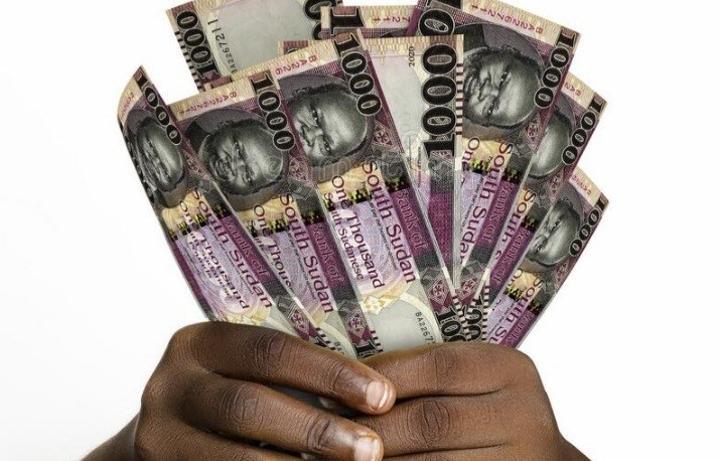Matik Kueth
Africa-Press – South-Sudan. The depreciation of the South Sudan Pound could worsen amid the continued depletion of the country’s foreign exchange reserves, warned Dr. James Alic, governor of the Bank of South Sudan.
According to The East African, Dr Alic warned at the 27th Ordinary Meeting of Monetary Affairs Committee of the East African Community (EAC) in Juba that the inflationary pressure could worsen as the country battles dollar shortage due to shrinking oil revenue.
According to Alic, the dwindling oil revenue is attributable to “geopolitical tensions, including the raging conflict in neighbouring Sudan and the Israel-Hamas war,” the media reported.
“Geopolitical tensions, including the raging war in neighbouring Sudan, have affected our pipeline to Port Sudan, and the Hamas-Israeli war has disrupted the major trading route in the Gulf of Eden, where shipment of our crude oil takes place, posing a challenge to South Sudan’s economic outlook,” he stated, as quoted by the East African.
He added: “As a result, our reserves are at historically low levels. These have huge implications for balance of payments, with negative consequences for currency depreciation and high volatility manifested in prices of goods and services. We hasten to add that South Sudan is a net importer, which creates unprecedented pressure on the external sector and trade balance.”
Alic noted that the blockade at the Red Sea “had jeopardised crude oil exports, leading to low reserves,” and that plans are underway to build international reserves.
“That said, we are committed to rebuilding our international reserves to meet the EAC convergence criteria of 4.5 months of import cover,” he said.
SSP depreciates further
South Sudan’s economy has braved challenges with the pound alarmingly losing against the greenback. For instance, at the Bank of South Sudan, $100 sells in the region of SSP159,000 but astronomically at SSP340,000 in the black market.
Dr Abraham Maliet, an economic expert, told The City Review in an interview that South Sudan the economic woes can only be linked to the political instability in the country and there is no connection to the Israeli-Hamas or Sudanese conflicts.
“Clearly, to be honest with you, the oil is not affected. You know, we had economic turbulence in the last year up to now. But then there was no Hamas-Israeli war in Gaza, there was no Sudanese war, there was none of those, even with the clients. So, I think it’s taking those into that to check your current situation,” Maliet stated.
He stressed that in order to increase food production, South Sudan should invest in agriculture and explore for economic solutions.
“What we need to do is to increase our production. And we have to get some sectors that increase our productivity and bring them into the economy. One of them, we need to increase our agricultural productivity. We should also look for alternatives, economic opportunities. It’s not oil alone that we can survive,” he said.
“There are other countries that don’t have oil that are better than us. So, when people say oil is a crime and the war in Sudan and the war in Hamas, to me, to my own understanding, that’s not the matter. The matter is that we are not producing,” he lamented.
Maliet lamented the fact that South Sudan is neither creating anything nor even trying to find alternatives to the economic breakdown.
He noted that despite South Sudan’s abundance of resources including fish, gum, coal, lumber, and timber the nation does not utilise them, stressing that the commodities are valuable resources that have the potential to stabilise the country’s economy.
“We have all of them. They are cash material. You can make money out of them. But we have neglected them. We have not put any efforts to develop them,” he stressed.
Faults auction
Maliet faulted the Bank of South Sudan’s auctioning system, claiming that it has inflated the value of the dollar.
“Even if you cannot trade dollars, then the dollar is always in demand. And I checked with some other people that the dollar now is not a market that needs a dollar. It is billions. There are tens of millions of dollars. The market does not need that much dollars. If you manage to consistently release a million dollars through the official channels, there is nothing called auction,” he explained.
He added, “Because auction actually increases the dollar. I know in some of the releases yesterday or so, the dollar is trading at 1,509 in the central bank. I don’t think there is a price. And I can see the difference is over 100%. So, if there was dollars for that price, then you could say, my God, there is too much money in the credit market. Because when you auction something out, then it is forever a bit higher. So if they want to sell, they should have a fixed rate for the dollar, which is called official rate. And then they also create what we call market or commercial rate.”
However, Majok Deng, another economist argues in his opinion published on The City Review newspaper on Monday that the application of force against forex dealers as a means of resolving the exchange rate problem is proving counterproductive.
Deng pointed out that although the government had ordered the arrest of black market dealers in the hopes of improving the situation, the dollar’s exchange rate kept on increasing.
“So, the government has often sent soldiers after innocent black marketers, hoping that the currency would appreciate against the US dollar. But if there is anything that the government has achieved after sending the military after the black marketers, it is the SSP dipping against the greenback. The latest episode is when the government ordered black marketers to stop trading local currency on the street, the result was the SSP’s external value decreased from SSP175, 000 per $100 as of March 2024 to SSP 300,000 per $100 as of May 7, 2024,” he stated.
Source: The City Review South Sudan
For More News And Analysis About South-Sudan Follow Africa-Press






